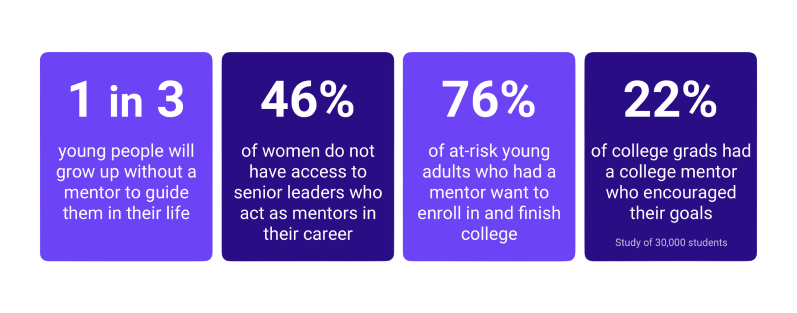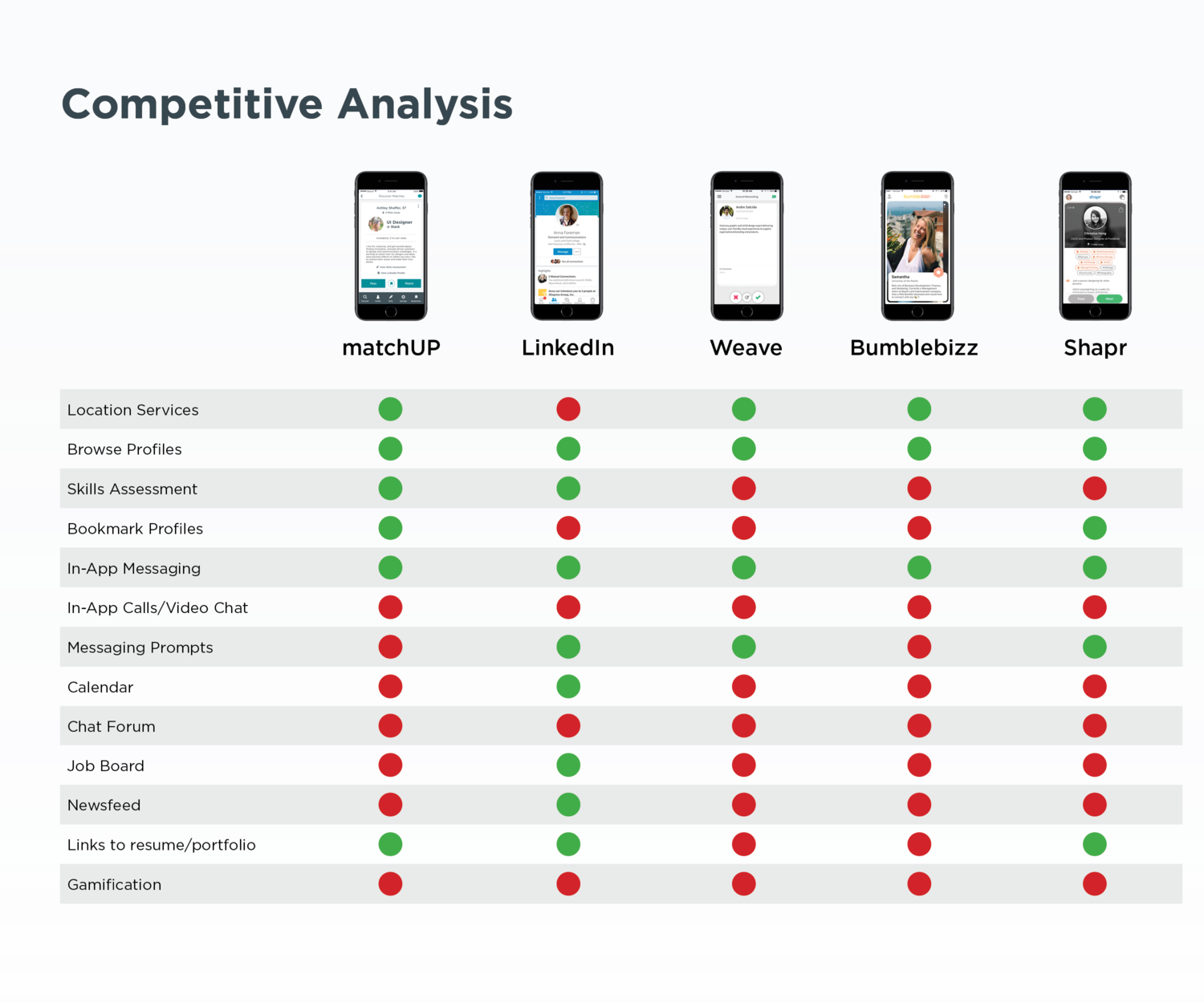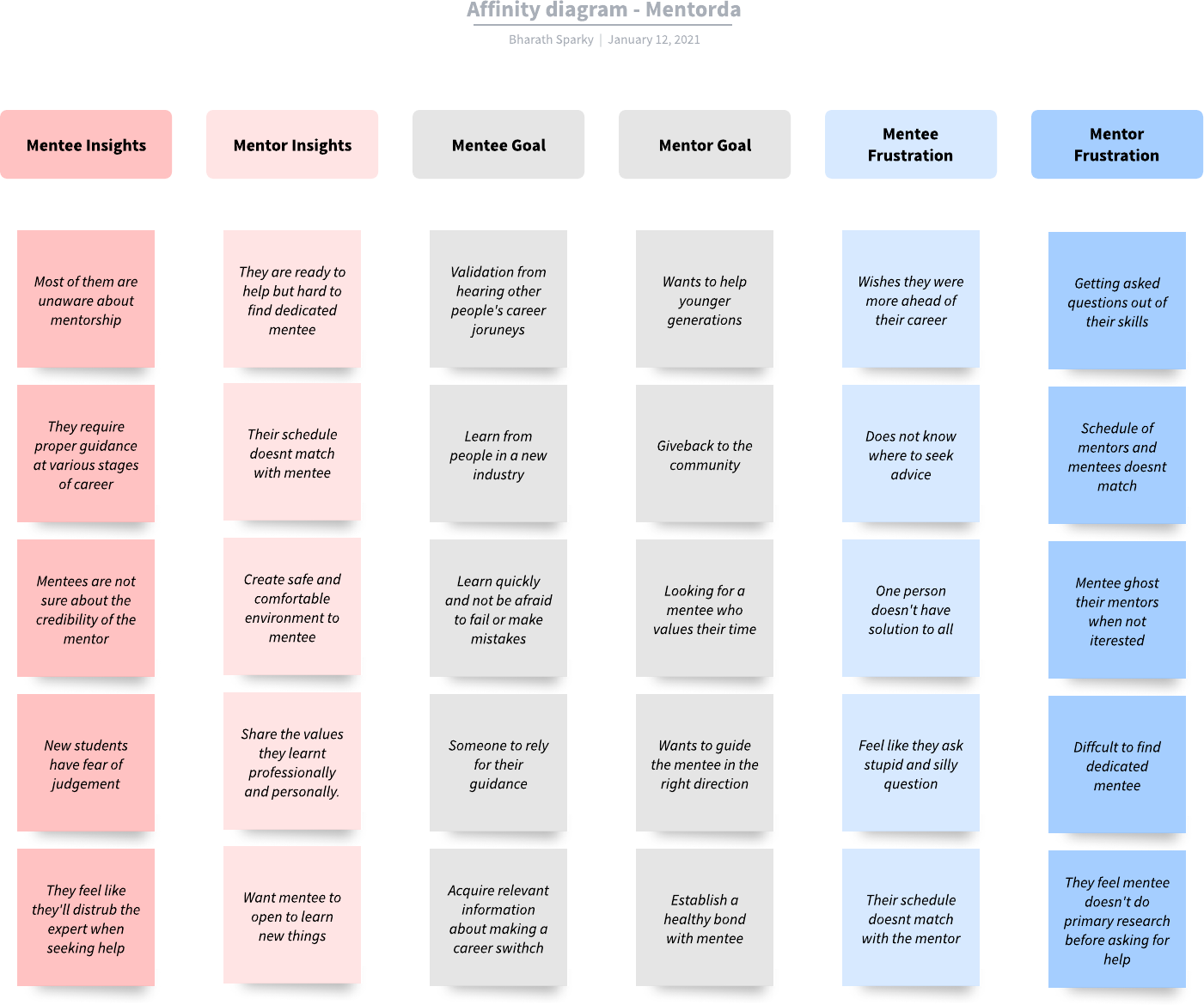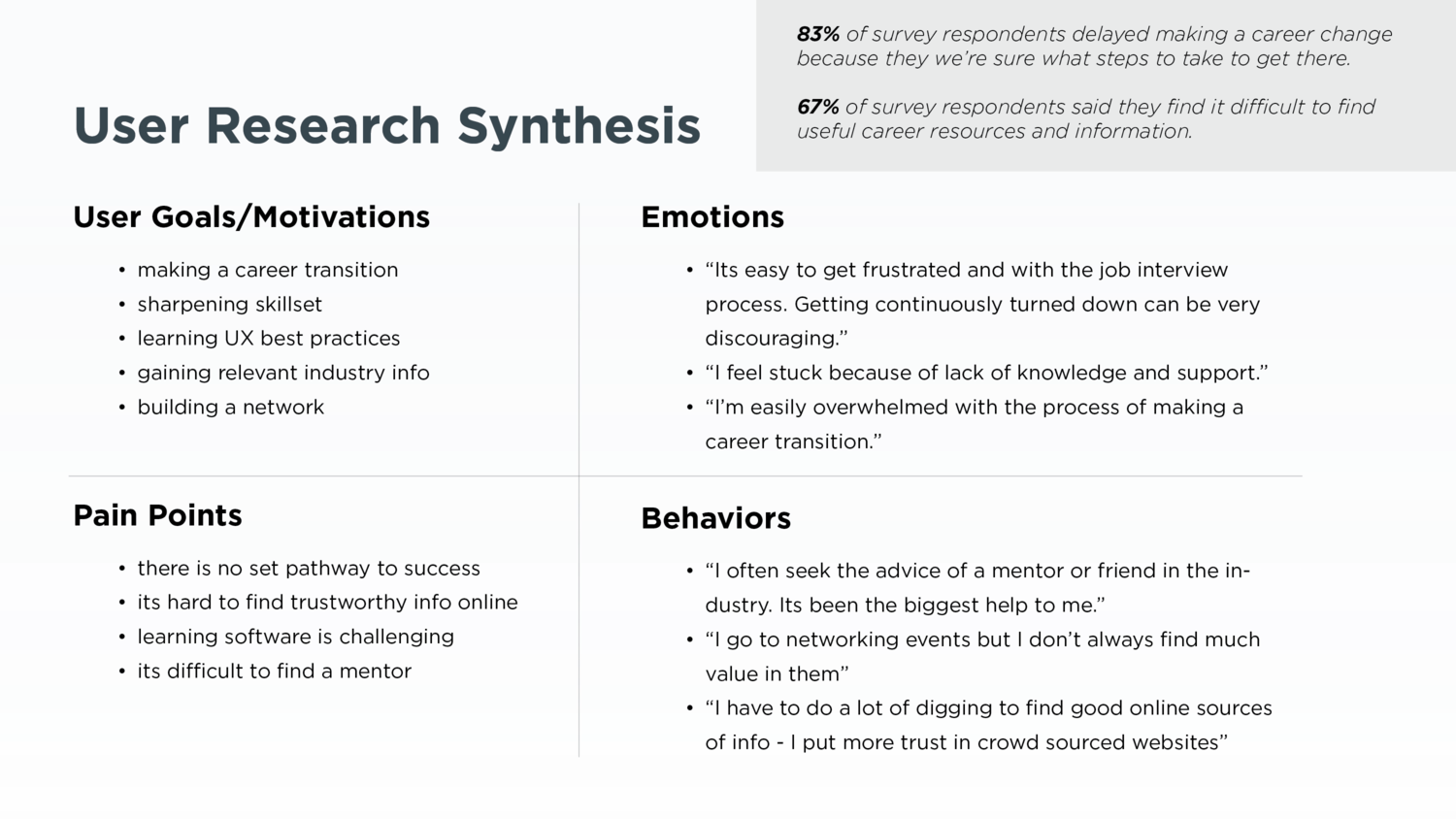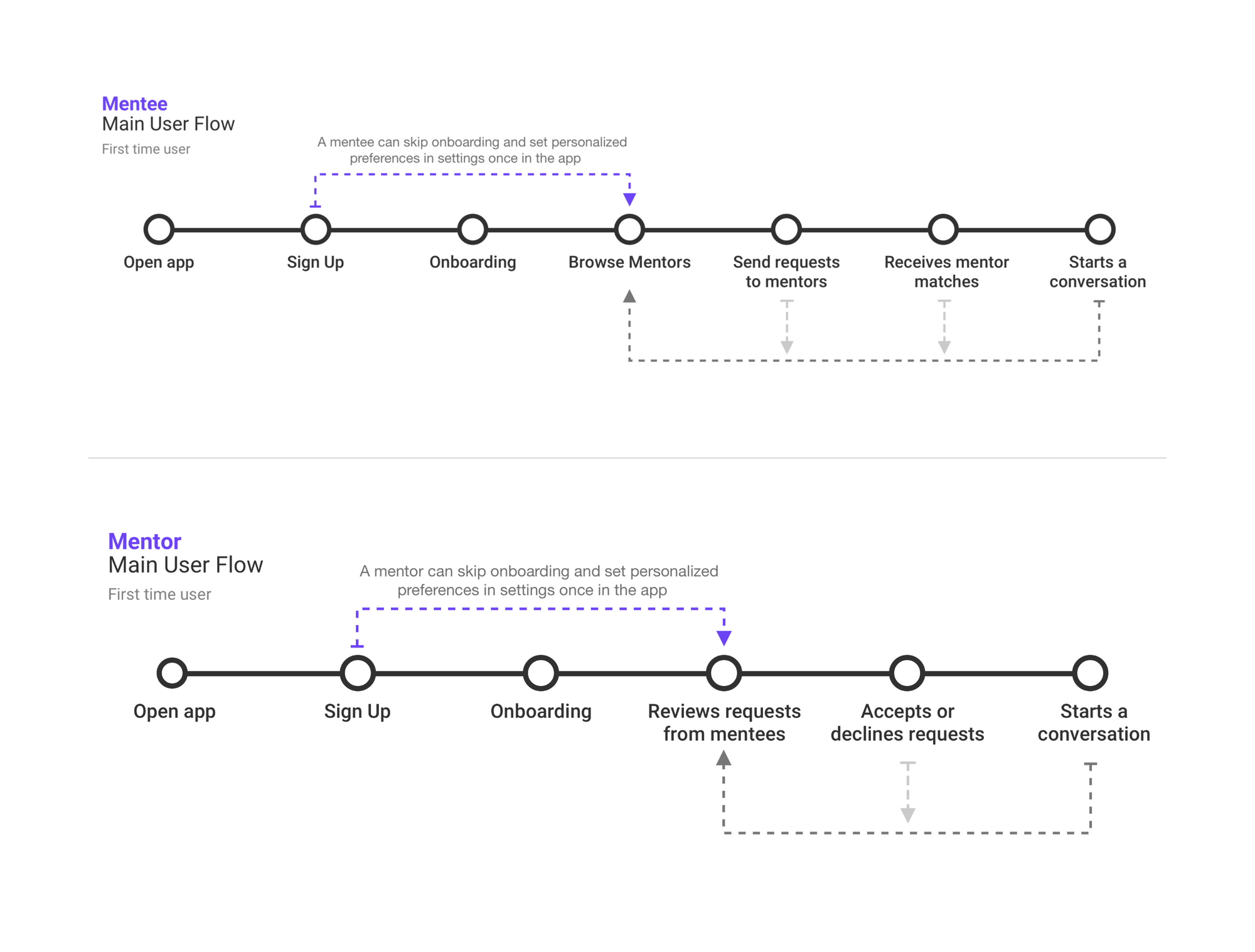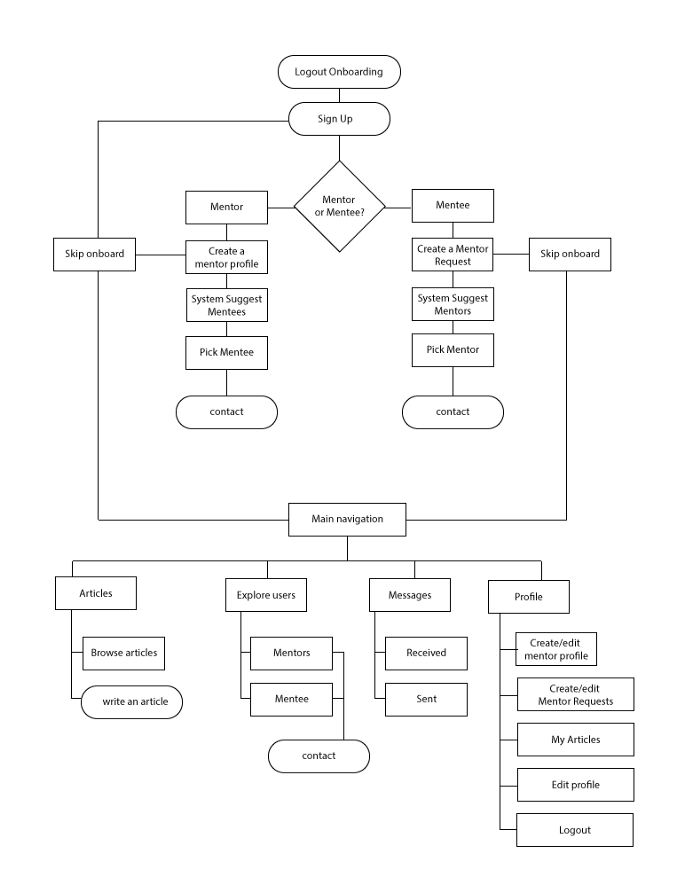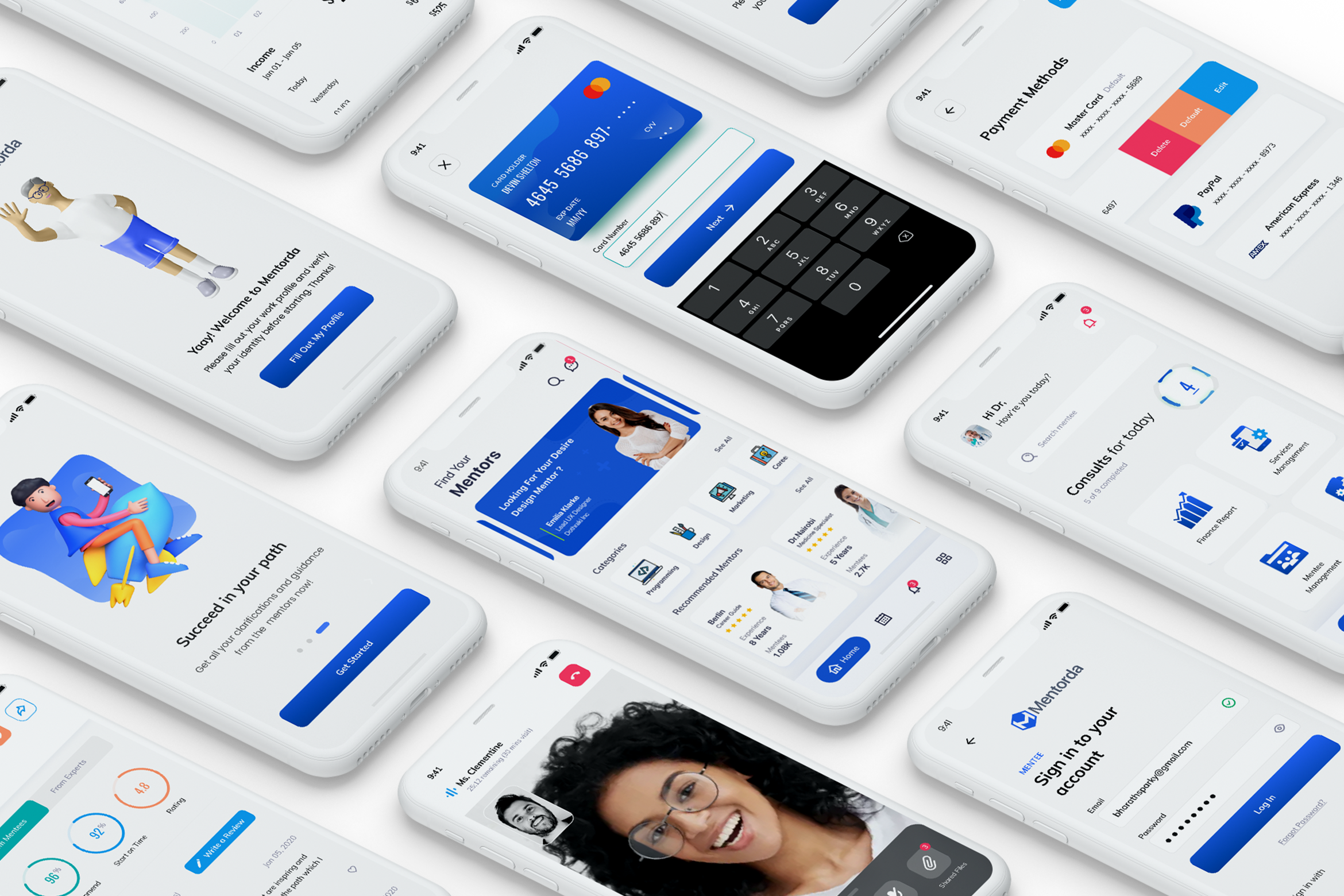Mentorda
- CLIENTSelf-Startup Idea
- ROLEEnd-to-end Product Designer
- TIMELINE2 Months
- TEAMMyself
We get it. Reliable mentors are hard to find

Poor Quality
You’re tired of the guessing
game to find the right mentor.

Bad Communication
You’re fed up with having to explain yourself multiple times.

Hard Schedule
You lose hope as schedule are hard to arrange.
Finding Mentors doesn’t have to be hard. We make it easy.

Breath-taking Mentors
All of our mentors are carefully vetted and have years of experience working in the industry.
You’ll get a dedicated and skilled mentors. With Mentorda, getting breath-taking mentors couldn't be any easier!


Communication That Matters
With a dedicated Mentors who cares about your success and direct live-chat access to your mentors, communication issues will be no more!


No More Hard Schedule
Finding a mentor is difficult because they are busy and hard to reach, so made this app to help mentee and mentor to connect.
The app’s focus will be on providing users with the knowledge, encouragement and advice they need to grow in their personal and professional lives.

Deliverables
- UX
- Competitive Analysis
- Surveys
- User Research
- User Personas
- Storyboarding
- Empathy Mapping
- Information Architecture
- User Flows
- UI
- Wireframes
- Hi-Fi Mockups
- Design Mockups
- Preference Tests
- Usability Tests
- Interactive Prototype
- BRANDING
- Logo Design
- Color Palette
- Typography
- Style Guide
Tools Used
- Figma
- Adobe Illustrator
- Adobe Photoshop
- Balsamiq
- Miro
- Marvel
- Google Forms
- Grammarly
Problem Overview
Unprepared for the future
At all stages of one's career, mentors play an important role. Unfortunately, for many people, finding a great mentor remains a challenge. They use a subpar app that matches them with a few mentors. Since the app did not suggest mentors that meet their criteria, they soon find that their mentor matches are not providing them with value or knowledge.
Solution Overview
Mentorda is a mentorship app that gets to know both the mentor and mentee first, learning about their professional life, goals and interests. From there, Mentorda will match potential mentors and prospective mentees based on similar, personalized preferences and interests. The app’s focus will be on providing users with the knowledge, encouragement and advice they need to grow in their personal and professional lives.
Discovery & Research
Competetive Analysis
I ran a competitive analysis that included a Competitor profile, a SWOT analysis, and a UX Analysis. The goal of the analyses was to gather knowledge about the concurrence and to learn from the strengths and the weaknesses of the competitors both from a UX and a marketing perspective. From the gathered insights I could start formulating possible user and job stories.
Survey
Using data to support design decisions is an important part of my design process. Both qualitative and quantitative data is useful for understanding user goals, pain points and lifestyle in order to tailor the user experience. For this design exercise, I gathered both types of data to understand what is happening and why it is happening.
Affinity Mapping
The research and data collection up to this point suggests that people not only have trouble finding a mentor or mentee, but also experience challenges being matched with a good mentor or mentee. This is problematic because having a mentor to provide advice, guidance and encouragement has been shown to produce personal and professional benefits.
Mentee Challenge: Making an app that will have the ability to find even ground and communication for a student/mentee looking to update his/her education or advance in the current career. Make it a safe /user friendly app as well.
Mentor Challenge:Find a better way to help make a safe, credible and good communicating app for the mentor. Make it so it’s reliable and user friendly, as well as making some money on the side.
User Persona

-
Hinata
-
25 yo, Designer from India
- Seeker, Learner
The process of making a career switch is daunting. I don't know what I don't know.
-
Story
-
Hinata wants to make a career transition from graphic designer to product designer. She is taking part time classes at Design institute to learn the discipline. She goes to meetups a few times a month but trouble making valuable connection with people in the UX design industry. She feels that a mentor would be extremely valuable and a great way to get information. She often has a lot of questions about making this career transition but no one to answer them. She is confused or frustrated with the process of making a career transition and could use some guidance and sage advice to give her more confidence.
-
Goals
- To make career transition
- To find a mentor
- To build a continuous relationship with a mentor
- To network with peers in desired field
-
Needs
- To feel confident asking for mentorship
- To be knowledgable about the latest design trends
- Have the mentor help setup long and short term learning goals of her

-
Tony
-
44 yo, VP of product from Canada
- Influencer,Leader
I've now reached the point in my career where I am in the position to lead.
-
Story
-
Tony is a VP of product at a large product based company. He's been working with the same company for about 5 years and is rising up the ranks in the company's mighty team of designers. In a few months his company is going to hire a bunch of entry level product designers and inters so he will be soon be put in a leadership position. He is little worried because doesn't have a ton of experience leading or mentoring young designers. He wants to try to find some mentees outside of his workplace to test his mentoring ablities and find out what is helpful to people starting a career in product design.
-
Goals
- Improve his people skills
- Learn pain points for young UI/UX designers
- Gain mentoring experience in a low risk environment
- Enhance career by learning to lead
-
Needs
- To feel valued for his time
- To receive some incentive in return for his effort and time.
- Have the mentor help setup long and short term goals.
Empathy Mapping
Journey Mapping
With the research as a basis, I could start to sketch possible scenarios and user journeys for the personas, to see how to make their way to reach their goals as simple as possible. I selected the most interesting and probable user stories from the journey maps and accomplished task analysis and user flows.
Storyboarding
Information Architecture
Information architecture aims at organizing content so that users would easily adjust to the functionality of the product and could find everything they need without big effort. The content structure depends on various factors. IA is a blueprint of the design structure which can be generated into wireframes and sitemaps of the project.
User Flow
UI Overview
At this point, I had a clear understanding of the features the app should contain, the actions Hinata and Tony will take while using Mentorda, and how to best address and alleviate user pain points through design. I was able to start sketching the main user flow and several other ideas for various screens. My goal here was to visualize the user interface, user interactions and flow of the app.
Logo Reveal
I made a logo reveal to give me a essence of the project and brand tone which indicates this app is for the people who seek help among similar peers.
High-fidelity Overview
I started the process sketching ideas with pen and paper of the overall structure and layouts of the app and the user flows defined in the previous step.I increased the level of detail and translated the sketches into mid-fidelity wireframes. Using rapid prototyping I was iterating towards a testable prototype of the app.As soon as the clickable prototype was ready it was time to conduct user tests. To get feedback from potential users was one of the most exciting parts of the process!
NOTE: Please wait for it to load and use the "+"" and "−" sign to zoom in and out of the figma project.
Prototype Overview
The prototype shows the end to end flow of a mentee searching for a mentor and a mentor reviewing and accepting the request.
NOTE: Please wait for it to load and navigate through the given prototype to explore. You can maximize the screen for the best view.
Metrics Overview
If I had the opportunity to develop and release this application, these are the ways I would measure its success and the effectiveness of this proposed experience:
1)Increase in matches between mentors and mentees
2)Positive messaging between users
3)Longer sessions with mentors
4)Low number of uninstalls
5)Number of video calls and coffee chats scheduled
6)High number of users joining
7)Onboarding and Questionnaire completion rate
Conclusion Overview
This case study has covered my approach to solving the problem of connecting mentors and mentees based on unique requirements. Early on, I identified a few problems that I focused on solving through an improved experience for mentees and mentors. These include current mentorship platforms having a poor overall user experience, lack of personalization, long and unclear sign up process and dated designs.
Mentorda solves problems and many others in a number of ways. Initial onboarding gets to know the user, understands their interests and provides them with immediate mentor suggestions based on how well of a match they are to each other. Personalized profiles not only give a human element to Doyenne, but provide trust and authenticity. Including chat, video calling and community groups allows mentors and mentees to build relationships, stay connected and easily receive advice and tips from mentors and other members.
This project has been an exciting and challenging journey. Seeing the app grow through repeated iterations, conversations with potential users and, user tests have been fascinating and very educational for me! I have learned a completely new mindset.
If you made it this far, thanks so much for reading through this case study! While this was a concept project, I believe Mentorda can be a leader in continuing to grow mentorship, and I hope this case study has inspired you to invest and support mentoring.

